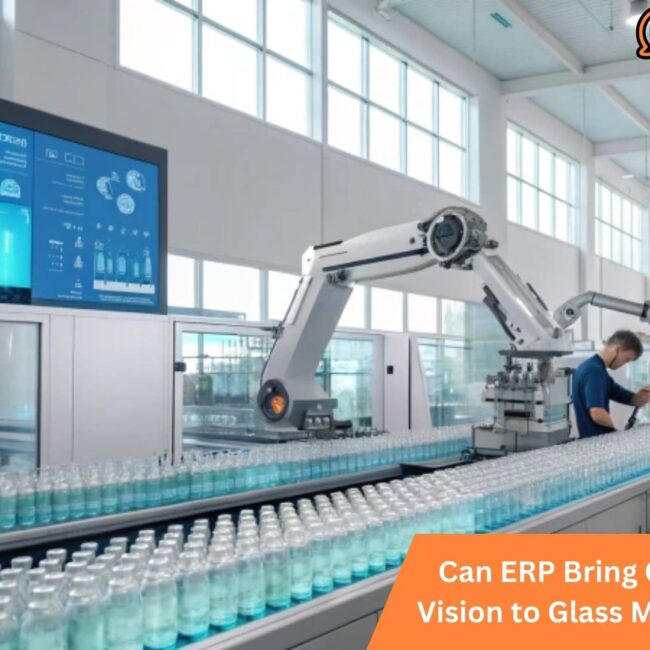
Struggling with Engineering, Procurement & Construction Projects?

How ERP Solves the Biggest Challenges in Engineering, Procurement, and Construction Projects
The EPC industry (Engineering, Procurement, and Construction) is one of the most complex sectors, involving multiple stakeholders, tight deadlines, and significant financial risks. Managing large-scale projects requires seamless coordination across engineering, procurement, and construction phases — which is easier said than done. Delays, cost overruns, and miscommunication can quickly escalate, leading to project failure and financial losses.
This is where ERP (Enterprise Resource Planning) systems play a crucial role. ERP integrates data, processes, and departments, providing a single source of truth to manage complex EPC projects more effectively. By centralizing operations, automating workflows, and improving real-time visibility, ERP systems help EPC companies reduce costs, improve efficiency, and deliver projects on time and within budget.
In this blog, we’ll explore how ERP transforms the EPC industry and why it’s essential for managing complex projects.
1. Centralized Project Management
EPC projects involve multiple teams working on different aspects of the project — engineering, procurement, and construction — often across different locations and time zones. Without a centralized system, miscommunication and data silos are inevitable.
ERP provides a unified platform where all project data, schedules, and communications are integrated in real-time. With ERP, EPC companies can:
- Assign tasks and monitor progress in one place.
- Centralize documentation, including blueprints and procurement orders.
- Provide real-time updates to all stakeholders to reduce delays.
Centralized project management reduces confusion, enhances collaboration, and improves project efficiency.
2. Streamlined Procurement and Inventory Management
The procurement phase is critical in EPC projects, involving the sourcing of raw materials, machinery, and equipment. Delays in procurement or poor inventory management can disrupt the entire project timeline.
ERP systems help EPC companies by:
- Automating purchase orders and supplier communication.
- Tracking material availability and delivery schedules.
- Managing stock levels and preventing shortages or overstocking.
By optimizing procurement, ERP ensures that materials arrive on time and within budget, preventing costly delays.
3. Improved Cost Control and Budget Management
Budget overruns are common in EPC projects due to unforeseen expenses, poor cost estimation, and inefficient resource allocation. ERP systems provide real-time financial tracking and cost control by:
- Monitoring project costs at every stage.
- Providing detailed breakdowns of expenses.
- Automating invoicing and payment processing.
With real-time financial visibility, EPC companies can prevent cost overruns and ensure profitability.
4. Enhanced Resource Planning and Workforce Management
Managing labor, equipment, and time is challenging in EPC projects, where mismanagement can lead to downtime and productivity loss. ERP helps companies maximize resource utilization by:
- Tracking resource availability and assigning tasks based on capacity.
- Managing shift schedules and automating labor cost calculations.
- Preventing bottlenecks and ensuring that equipment is used efficiently.
Effective resource planning leads to increased productivity and reduced operational costs.
5. Real-Time Data and Performance Monitoring
EPC projects are highly dynamic, with constant changes in scope, timelines, and costs. Without real-time data, project managers are forced to make decisions based on outdated information.
ERP systems provide real-time data on:
- Project progress and milestones.
- Resource utilization and labor productivity.
- Financial performance and cash flow.
Access to real-time insights allows EPC companies to adapt quickly to challenges and keep projects on track.
6. Risk Management and Compliance
EPC projects involve significant regulatory, safety, and financial risks. Failure to meet compliance requirements can result in fines, legal action, and project delays.
ERP systems help EPC companies manage risk by:
- Tracking regulatory requirements and compliance standards.
- Automating safety checklists and quality control processes.
- Providing audit trails for improved accountability.
By improving compliance and risk management, ERP systems protect EPC companies from costly setbacks.
7. Seamless Communication and Collaboration
Poor communication between teams and stakeholders is a leading cause of project failure in the EPC industry. ERP systems improve communication by:
- Providing a central communication platform for all teams.
- Allowing real-time sharing of project updates and reports.
- Automating alerts and notifications for project changes.
Improved communication leads to better coordination and faster problem resolution.
8. Quality Control and Assurance
Maintaining consistent quality is essential in the EPC industry, where defects and failures can result in safety hazards and financial losses. ERP systems improve quality control by:
- Automating inspection and testing processes.
- Tracking material and construction quality standards.
- Providing real-time reporting on defects and corrective actions.
Enhanced quality control ensures that projects meet industry standards and client expectations.
9. Scalability and Flexibility for Future Growth
As EPC companies grow, their operational complexity increases. ERP systems are highly scalable and can adapt to changing business needs by:
- Supporting multi-site and multi-country operations.
- Adding new modules and functionalities as the business expands.
- Integrating with third-party applications and technologies.
ERP provides long-term value by growing with the business.
10. Post-Project Analysis and Continuous Improvement
After project completion, understanding what worked and what didn’t is crucial for future success. ERP systems provide detailed project analysis and insights by:
- Generating reports on cost, schedule, and performance.
- Identifying areas for improvement.
- Providing data for strategic planning and decision-making.
Post-project analysis helps EPC companies refine their processes and improve future project performance.
✅ Why ERP is Essential for Engineering, Procurement, and Construction Success
Managing complex EPC projects without a centralized system leads to inefficiencies, cost overruns, and poor coordination. ERP systems provide a comprehensive solution by integrating project management, procurement, financial tracking, and communication into a single platform.
By implementing ERP, EPC companies can:
- Complete projects on time and within budget.
- Improve resource utilization and reduce waste.
- Enhance communication and decision-making.
- Increase profitability and client satisfaction.
If your EPC business is struggling with operational challenges or project delays, it’s time to explore how ERP can fix it.
📌 FAQs
1. How does ERP improve project management in the Engineering, Procurement, and Construction industry?
ERP centralizes project data, schedules, and communication, ensuring better coordination and reducing delays.
2. Can ERP systems handle multi-location Engineering, Procurement, and Construction projects?
Yes, ERP systems support multi-site operations and allow real-time data sharing across locations.
3. How does ERP reduce costs in the Engineering, Procurement, and Construction industry?
ERP provides real-time cost tracking and automates financial processes, helping businesses control expenses.
4. Can ERP systems integrate with construction management software?
Yes, most ERP systems integrate with construction management tools for seamless operations.
5. How does ERP improve supplier and procurement management?
ERP automates procurement, tracks supplier performance, and prevents stock shortages or overstocking.
6. Is ERP suitable for small and medium-sized Engineering, Procurement, and Construction companies?
Yes, ERP systems are scalable and customizable for businesses of all sizes.
7. How does ERP help with risk management in Engineering, Procurement, and Construction projects?
ERP tracks compliance, automates safety checklists, and provides audit trails to reduce risks.
8. Can ERP systems manage labor and resource allocation?
Yes, ERP helps schedule labor, track resource availability, and prevent downtime.
9. How does ERP improve communication in Engineering, Procurement, and Construction projects?
ERP provides a centralized platform for team collaboration and real-time updates.
10. How long does it take to implement an ERP system for an Engineering, Procurement, and Construction company?
Implementation time varies based on project complexity, but most ERP systems can be deployed within 3 to 6 months.
🚀 Ready to Fix Your Engineering, Procurement, and Construction Challenges with ERP?
If you’re ready to improve efficiency, reduce costs, and deliver successful projects, ERP is the solution you need. Contact us today to discover how ERP can transform your Engineering, Procurement, and Construction business!



